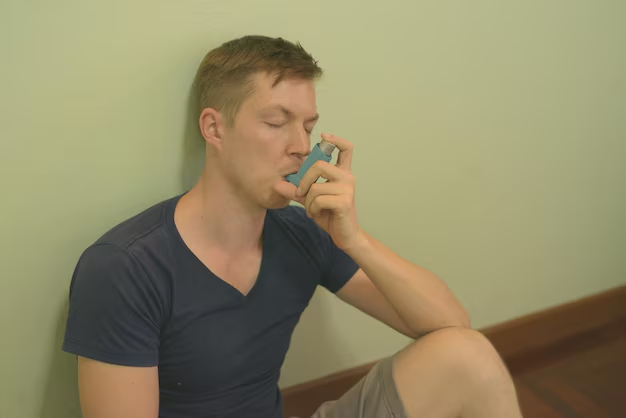Understanding Your Options for Managing Bronchitis Symptoms
Bronchitis can be an unwelcome addition to the common cold or flu season. Its disruptive cough and accompanying symptoms can leave anyone feeling under the weather. But understanding what you can do to manage those symptoms effectively can help you navigate this often annoying respiratory condition. This article delves into various approaches for handling bronchitis, empowering you with knowledge and clear next steps while maintaining a friendly, conversational tone.
Recognizing Bronchitis: What You Need to Know
What is Bronchitis?
Bronchitis occurs when the bronchial tubes, which carry air to and from the lungs, become inflamed. This inflammation leads to a persistent cough, which may be accompanied by mucus. There are two types of bronchitis: acute and chronic. Acute bronchitis is more common and typically results from a cold or respiratory infection, while chronic bronchitis is characterized by a persistent irritant or condition, such as smoking, that causes long-term inflammation of the bronchial tubes.
Symptoms of Bronchitis
Understanding the symptoms can help in managing the condition better:
- Persistent cough, often producing mucus
- Fatigue and tiredness
- Shortness of breath or wheezing
- Mild fever and chills
- Chest discomfort
When to Seek Medical Attention
While many cases of acute bronchitis clear up on their own, certain symptoms warrant a visit to a healthcare professional:
- High fever persisting for more than a few days
- A cough lasting longer than three weeks
- Wheezing or breathlessness
- Blood in the mucus
Managing Bronchitis: A Multitude of Options
Over-the-Counter (OTC) Solutions
For those dealing with mild bronchitis, over-the-counter medications can be beneficial in managing symptoms:
1. Pain Relievers
OTC pain relievers like ibuprofen or acetaminophen can reduce fever and alleviate chest pain.
2. Cough Suppressants and Expectorants
- Cough Suppressants: Ideal for a dry cough, these can help you rest better, especially at night.
- Expectorants: Useful when mucus production is present, these help clear mucus from the bronchial tubes.
Home Remedies and Natural Approaches
Natural remedies can offer relief and are often favored for their gentle approach:
- Hydration: Drinking plenty of fluids helps thin mucus, making it easier to expel.
- Warm Saline Gargles: These can soothe a sore throat and minimize irritation.
- Honey and Lemon: A mixture of honey and lemon in warm water can calm a cough.
- Steam Inhalation: Inhaling steam can open airways and loosen mucus.
- Humidifiers: To maintain optimal humidity levels, which may reduce cough and assist in mucus drainage.
Lifestyle Adjustments
Adopting certain lifestyle changes can also play a crucial role:
- Rest: Adequate rest allows the body to recover and strengthens the immune system.
- Diet: Consuming a balanced diet rich in fruits, vegetables, and lean proteins supports overall health.
- Smoking Cessation: Avoiding smoking or exposure to tobacco smoke can significantly reduce bronchitis symptoms and prevent chronic bronchitis.
Prescription Medications
In some cases, prescription treatments may be necessary. It's important to consult a healthcare provider for these options:
1. Bronchodilators: These medications help open airways for better airflow.
2. Steroids: Used to reduce inflammation in severe cases.
3. Antibiotics: These may be prescribed if a bacterial infection complicates bronchitis, although they are not effective against viral infections.
Exploring Prevention and Long-Term Management
Preventing Bronchitis
Though not all cases are preventable, certain steps can reduce the risk:
- Vaccinations: Annual flu vaccines and the pneumococcal vaccine can lower the risk of respiratory infections.
- Hand Hygiene: Regular handwashing helps prevent the spread of germs.
- Avoidance: Steering clear of pollutants, such as tobacco smoke and harsh chemicals, helps protect the respiratory system.
Strengthening Your Immune System
A strong immune system is your best defense against infections that lead to bronchitis:
- Regular Exercise: Physical activity boosts immune function.
- Adequate Sleep: Sleep is crucial for immune performance.
- Hydration and Nutrition: Proper hydration and a diet rich in immune-boosting nutrients help fortify your body.
A Note on Chronic Bronchitis and COPD
Chronic bronchitis is often linked to Chronic Obstructive Pulmonary Disease (COPD), a condition that includes obstructed airflow from the lungs. If you have chronic bronchitis, it's critical to work closely with a healthcare provider to manage symptoms and improve lung function.
Closing Insight: Listen to Your Body
Understanding what you can take for bronchitis and how to manage its symptoms effectively requires a mix of pharmaceutical solutions, natural remedies, and lifestyle adaptations. Whether you opt for OTC medications, home remedies, or need to discuss prescription options with your healthcare provider, staying informed and attentive to your needs is key. Remember, your body communicates its needs, and listening can lead to more effective symptom management and quicker recovery.
Simple Tips to Effectively Manage Bronchitis 🌿🫁
- Hydrate Often: Keep mucus thin and manageable by drinking lots of fluids. 💧
- Try OTC Solutions: Use pain relievers and expectorants as needed. 🛒
- Inhale Steam: Helps to clear airways and ease breathing. 🌬️
- Rest Plenty: Give your body time to heal and recuperate. 🛌
- Avoid Irritants: Stay away from smoke and pollutants whenever possible. 🚫
- Seek Professional Advice: See a doctor if symptoms persist or worsen. 👩⚕️
By integrating these strategies, you can tackle bronchitis with confidence and a better understanding of your health options.

